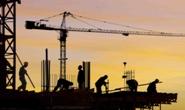Analysis

October 31, 2016
Gibraltar Industries Comments on Construction Industry
Written by Sandy Williams
Gibraltar Industries, as a leading manufacturer and distributor of building products, has close ties to the steel industry. In the third quarter earnings call, Gibraltar Senior Vice President and CFO Ken Smith was asked about how the company is handling the recent steel price increase.
Steel increases are monitored multiple times day across the Gibraltar business platform, said Smith. “We’re trying to ensure that we are buying at the lowest optimum points for quantities that we need in the future. And we feather those sources of supply based on where we think the cost is going to be going.”
Commenting on infrastructure construction, Director and CEO Frank Heard had the following insight to offer:
“Well, certainly, when you look at industrial infrastructure, you’ve got to look at the two different end markets, the infrastructure really being elevated highways and bridges. And the end market there is — there’s certainly a great need in terms of rebuilding our infrastructure from a transportation perspective. And recently we got the benefit of the FAST Act bill.
“That, to a large extent, has not affected the market in any positive way yet in terms of a rising tide of order intake or shipments. And I think that the issue there — and there’s lots of different press around this — that those monies are primarily funded — targeted at large-scale projects and are matched with state funding.
“State funding is the challenge to this day, as various states struggle to balance their budgets and are looking at maybe bond releases to just renegotiate debt as opposed to rebuilding infrastructure. So, it’s taking longer than I think people expected. And it’s certainly not transforming itself into any immediate uptick in order intake or backlog opportunities for us today in the infrastructure side of our business platform. We do expect to begin to see that from a bidding activity perspective. We’re beginning to see projects being talked about. We expect that to continue in early 2017 and start to see a trickle effect into maybe late 2017 and a rising tide of orders and hopefully shipments as well that can be pulled into the 2017 time frame. And then from that day forward, we expect it to continue to improve.”
Gibraltar has not had any meaningful increase in work due to the recent hurricane in the Southeastern states. Said Smith, “Generally, at least historically, that’s been a relatively drawn-out order pattern, particularly for roof-related repairs and replacements that need to occur. Homeowners typically have got to get insurance adjusters in, file claims, potentially debate claim settlements; then go find contractors, get bids. So it can draw out weeks, particularly as we know for those among us who do simple home projects and use a contractor. I know my personal experience it’s not fast, let alone replacing a roof. It will probably be protracted.”






